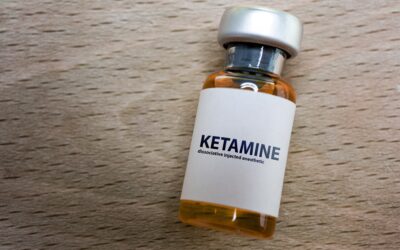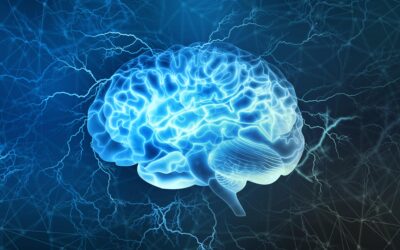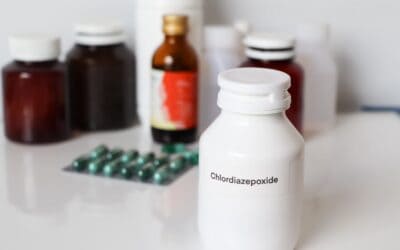Alcohol Detox In Comfort In West Tennessee
At Detox West Tennessee, our alcohol detox in Jackson, TN is the first step in recovery from alcohol addiction (also called “alcohol use disorder” or “alcoholism”). We understand how difficult the decision to attend detox for alcohol addiction can be. However, finding safe and effective alcohol addiction treatment is essential to living a happy, healthy, and stable life.
Alcohol use disorder (AUD) adversely impacts the lives of Americans every day. The 2022 National Survey on Drug Use and Health (NSDUH) reports that “Among Americans aged 12 or older, 10.5 percent (29.5 million people) had a past-year alcohol use disorder.” At our alcohol detox center in Tennessee, we offer detoxification and rehabilitation programs to help individuals safely detox from alcohol and recover from addiction.
Is Alcohol Addiction a Disease?
Yes, alcohol addiction is widely recognized as a disease. This classification is based on extensive research that demonstrates how alcohol addiction fundamentally alters brain chemistry and functioning. Consequently, leading to changes in behavior and physical health.
Here are key reasons why alcohol addiction is considered a disease:
- Brain Chemistry Alteration: Alcohol addiction alters the brain’s reward system and neurotransmitter balance. Thereby, affecting areas responsible for judgment, decision-making, behavior control, and memory. As a result, these changes make it increasingly difficult for individuals to control or stop their drinking despite negative consequences.
- Chronic Nature: Like many diseases, alcohol addiction is chronic, meaning it persists over a long time and often involves cycles of relapse and remission. This chronic aspect underlines the need for long-term alcohol addiction treatment and management strategies.
- Progressive Condition: Typically, alcohol addiction progresses in stages, becoming more severe over time. However, early intervention can prevent or lessen the progression, similar to other chronic diseases.
- Genetic Factors: Research shows that genetics play a significant role in an individual’s susceptibility to alcohol addiction, much like other diseases that have hereditary components.
- Physical and Mental Health Complications: Chronic alcohol abuse can lead to a host of physical health problems, including liver disease, cardiovascular issues, and neurological damage. It also significantly impacts mental health, contributing to or exacerbating disorders such as depression and anxiety.
- Recognition by Medical Institutions: Major health organizations, including the American Medical Association and the World Health Organization, recognize alcohol addiction as a disease.
Understanding alcohol addiction as a disease helps in reducing stigma and promoting more effective, compassionate treatment approaches. Moreover, it emphasizes that alcohol addiction is not a matter of choice or moral failure, but rather a medical condition that requires appropriate treatment and support.

What are the Short-Term Effects of Alcohol?
The short-term effects of alcohol occur following the first drink and intensify when someone consumes more alcohol. Many people drink in social situations to loosen up, to fit in due to peer pressure, or to feel more confident. Despite these reasons, alcohol affects the areas of the brain responsible for thought and perception. Many people find that drinking helps increase feelings of self-esteem and confidence. However, these feelings are fleeting and can lead to regrettable or even dangerous behavior while under the influence of alcohol.
Short-term effects of alcohol include:
- Reduced concentration and memory
- Impaired judgment and coordination
- Nausea and vomiting
- Reduced inhibitions
- Altered mood and behavior
- Changes in heart rate and blood pressure
The short-term effects of drinking can be severe if someone drinks heavily or uses additional drugs along with alcohol (polydrug use). People often use alcohol alongside other substances, such as marijuana, cocaine, or benzodiazepines (benzos). Mixing alcohol with other substances poses a serious health risk. Polydrug use can lead to overdose and may be fatal.
What are the Long-Term Effects of Alcohol?
The long-term effects of alcohol can have dire consequences on physical and mental health. Alcohol misuse eventually leads to neural changes in the brain, impacting mood, behavior, and cognitive function. For example, someone may have impaired cognitive function like poor memory or poor decision-making skills after prolonged drinking. These changes can negatively impact professional, personal, academic, familial, and romantic well-being.
In the long term, alcohol misuse can lead to:
- Alcohol use disorder (AUD)
- Cardiovascular issues (stroke, heart disease)
- Liver disease
- Increased risk of cancer
- High blood pressure
- Depression and anxiety
- Poor social and financial well-being
Prolonged alcohol misuse often leads to dependence. The more someone consumes alcohol, the greater their body’s tolerance to alcohol. Tolerance means they must consume more alcohol to achieve the desired effects, which leads to dependence. Alcohol suppresses the nervous system, and the brain “overfires” to compensate. When an individual stops drinking, the brain takes time to recover and resume normal function. Physical dependence leads to withdrawal symptoms when attempting to cut back or stop drinking. In addition, drinking too much can lead to alcohol poisoning, which can be fatal.
Understanding Alcohol Withdrawal
Alcohol withdrawal occurs when someone suddenly stops drinking after developing physical dependence. When they use alcohol for a prolonged period, their body gets used to having it in their system. If they try to cut back or suddenly stop drinking, they are subject to a host of withdrawal symptoms. These symptoms can be unpleasant and uncomfortable feelings, thoughts, and sensations.
Alcohol withdrawal symptoms can also be life-threatening if a person doesn’t have professional support to treat a severe addiction. Furthermore, people experience withdrawal symptoms on a physical, psychological, and emotional level. The severity of withdrawal symptoms greatly depends on:
- History of alcohol use
- Co-occurring physical or mental health conditions
- How much alcohol an individual consumes
Physical Alcohol Withdrawal Symptoms
The body must adapt to a lack of alcohol during detox. Physically, this change manifests as withdrawal symptoms such as:
- Headaches
- Muscle pain
- Nausea, vomiting, diarrhea
- Shaking, tremors
- Reduced appetite
- Fatigue
- Fluctuating body temperature (hot and cold flashes)
- Increased heart rate
- Seizure
Psychological Alcohol Withdrawal Symptoms
The possible psychological symptoms of alcohol withdrawal include:
- Depression
- Anxiety
- Confusion
- Nightmares
- Poor concentration
- Irritability
- Agitation
- Mood swings
- Powerful cravings for alcohol
- Hallucinations
- Delirium Tremens (DTs)
Detoxing from alcohol alone, without medical supervision, can be extremely dangerous due to the potential severity of withdrawal symptoms and complications. Alcohol withdrawal ranges from mild symptoms to life-threatening conditions, depending on the level of dependency and other individual factors.
Also, due to the potential mental health challenges, it’s essential that alcohol withdrawal, especially for those with a heavy or long-term drinking history, is managed under close medical supervision. Medical professionals at our alcohol detox in Memphis can provide medications to help individuals safely detox from alcohol, monitor mental health, and address any complications that arise. Additionally, treating underlying mental health disorders concurrently with addiction treatment is crucial for a holistic and effective recovery process.
The Link Between Alcohol and Anxiety
Anxiety is a natural experience that affects most of us throughout life at one point or another. However, anxiety disorders are medical conditions whereby people feel anxious for no reason. People with anxiety disorders might use alcohol to “self-medicate” for their symptoms since alcohol is a depressant.
Alcohol reduces inhibitions and can provide feelings of temporary confidence and high self-esteem. People with anxiety disorders often lack these feelings and may use alcohol as a crutch to reduce feelings of everyday stress. Many people with anxiety disorders drink to unwind when they feel irritable, tense, or nervous. However, using alcohol to ease anxiety symptoms ultimately has the opposite effect. Anxiety symptoms can come on within a few hours of alcohol consumption and persist throughout the following day.
Ironically, anxiety is also one of the most common withdrawal symptoms of alcohol. Withdrawal anxiety can be so severe that a person may feel driven to use more alcohol to cope. When there is already an underlying anxiety disorder, alcohol use can worsen over time, creating a harmful cycle.
Alcohol and Pregnancy
There is no safe time to drink alcohol during pregnancy. Alcohol in the mother’s bloodstream also enters that of the baby. Drinking while pregnant can affect the growth and development of a baby’s brain and central nervous system (CNS). Additionally, some babies can have specific physical characteristics associated with specific conditions of mothers who drink while pregnant.
Excessive alcohol consumption during pregnancy can lead to:
- Birth complications
- Fetal alcohol syndrome
- Miscarriage
- Stillbirth
Alcohol and Liver Disease
Excessive alcohol consumption leads to organ disease and failure. One of the most common issues faced by those who abuse alcohol is liver disease, specifically alcohol-related liver disease (ARLD).
The liver is a complex organ responsible for:
- Filtering toxins in the blood
- Helping digestion
- Regulating blood sugar
- Fighting disease and infection
The liver filters toxins like alcohol from the system. Excessive drinking strains the liver by overloading it with additional toxins from alcoholic beverages. Some liver cells die in the process of filtering, even when you don’t drink. The liver can repair itself to keep functioning, however, excessive use of alcohol puts a lot of pressure on the liver and reduces its ability to regenerate.
Some of the risks of alcohol use disorder on the liver include:
Alcoholic Fatty Liver Disease
Alcohol fatty liver disease can occur after a short period of heavy drinking. However, it is possible to recover by abstaining from alcohol. The liver has the amazing ability to repair itself over time if sobriety is maintained.
Alcoholic Hepatitis
Prolonged alcohol use can cause alcoholic hepatitis, which is one of the leading causes of alcohol-related death. Like fatty liver disease, this condition is also reversible due to the liver’s ability to heal. However, if left untreated, alcoholic hepatitis can be life-threatening.
Cirrhosis of the Liver
Cirrhosis is a severe condition in which excessive use of alcohol scars the liver. The condition is not easily reversible. However, further damage can be prevented by abstaining from alcohol.

The Importance of Medical Detox for Alcohol Withdrawal
Alcohol withdrawal can be a complex and potentially dangerous process, as the body adjusts to functioning without alcohol. Symptoms range from mild to severe and may include tremors, anxiety, nausea, insomnia, and even seizures in severe cases. Without proper medical supervision, these symptoms can escalate and pose serious health risks.
But it’s not just about physical safety. Alcohol withdrawal is also emotionally and psychologically challenging. That’s why our alcohol detox center in Tennessee takes a holistic approach to medical detox Thus, offering evidence-based treatment, counseling, and support groups to address the underlying issues and provide the necessary tools for long-term recovery. By addressing the emotional and psychological aspects of addiction, individuals gain a better understanding of their triggers and develop effective coping strategies.
Choosing a professional medical detox program, such as the one offered at Detox West Tennessee, ensures that individuals receive comprehensive care in a supportive environment. Our goal is to provide a safe and comfortable space for individuals to detox from alcohol while receiving necessary medical attention. Remember, seeking medical detox is the first step toward overcoming alcohol addiction. It’s a crucial foundation for the recovery journey. If someone is seeking alcohol detox in Memphis, Detox West Tennessee is here to help.
Safe Medical Alcohol Detox
Medical alcohol detox centers in both Memphis, and Collierville, TN offer inpatient support to manage withdrawal symptoms and begin recovery safely. During inpatient detox, you will be kept away from drinking triggers and access to alcohol. Alcohol withdrawal syndrome can be extremely challenging to overcome. Trying to detox alone is dangerous due to the severity of the withdrawal symptoms associated with alcohol dependence.
Addiction often has its roots in unresolved trauma or other mental health conditions. When you stop drinking, the thoughts and feelings you want to escape can resurface, which can be emotionally overwhelming. Heightened emotions can combine with feelings of hopelessness and despair and result in suicidal thoughts and ideation. Detox and withdrawal must be medically supervised to keep you safe during this process.
Some may use prescription medications during detox in a process called medication-assisted treatment (MAT). These medications help lessen the severity of withdrawal symptoms and prevent relapse. The experienced treatment team might recommend some of the following medications during detox:
- Naltrexone
- Benzodiazepines
- Anticonvulsants (e.g gabapentin)
- Barbiturates
- Disulfiram
At Detox West Tennessee, we assess each client’s overall physical and mental health to ensure we deliver the best treatment plan to begin recovery. We also accept Cigna and UHC insurance for clients.
Begin Alcohol Detox Today
At Detox West Tennessee, we provide compassionate support for those struggling with alcohol addiction. We offer traditional medical treatment along with holistic care that heals the body, mind and spirit. If financing is a problem, we accept insurance like Aetna and UnitedHealthcare. We also offer care for those near the Jonesboro, Arkansas area. Choosing between the right alcohol detox centers in Memphis, may seem like a challenge, but our team is ready to answer any questions you may have. You or your loved one deserve a life free of the negative consequences of addiction.
Call us today or visit our admissions page to begin your recovery from alcohol addiction.
Program Links
Related Articles
Ketamine and Alcohol Risks and Effects
Drug and alcohol use is dangerous on all accounts. Still, combining ketamine and alcohol can lead to an increasing...
How Does Meth Abuse Impact the Brain?
The human brain consists of a complex balance of neurotransmitters that control essential functions such as movement,...
Is Alcohol the Most Dangerous Drug?
Many people believe heroin or crystal meth are the most dangerous drugs to use. Fentanyl, heroin, crystal meth, and...
The Effects of Amphetamine Abuse
A disturbing trend in prescription drug abuse connects with the rising number of healthcare providers relying on...
Signs of Librium Addiction and Withdrawal
Librium is the well-known brand name for the generic drug chlordiazepoxide. Librium is a benzodiazepine class of drugs...
Visit us at
370 North Cumberland St.
Jackson, Tennessee, 38301
Have a Question? Call us
Hours
- Open 24 hours







